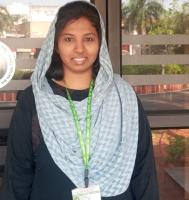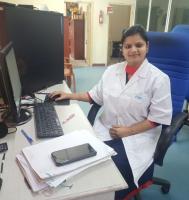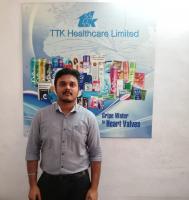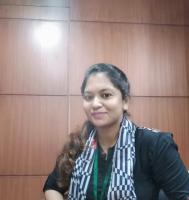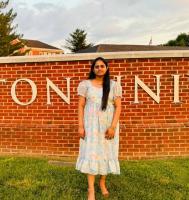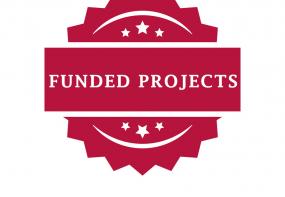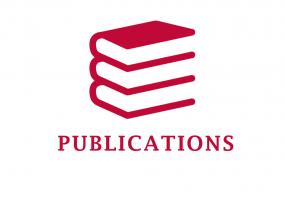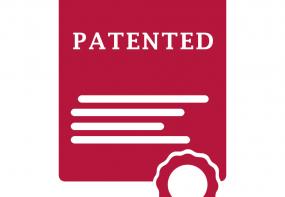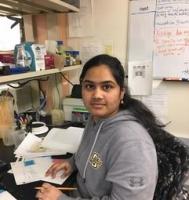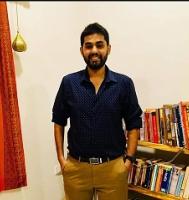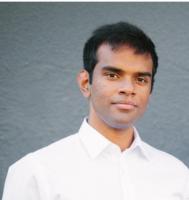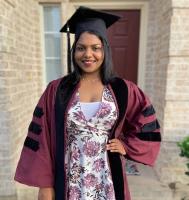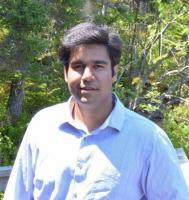School of Science & Humanities
The Department of Chemistry was one of the founding departments of Sathyabama started in the year 1988. Initially, the department was inducted to teach for the undergraduate engineering chemistry courses of the Institute. The department has started its research programme in the year 2001 and established the post-graduate and undergraduate courses in the year 2015 and 2017 respectively. Ever since, the department is shaping the students career through its graduation programme and has produced 72 postgraduates and 67 undergraduates. In research domain, it has spread its wings in translational research with a leading- edge technology in health care treatment, industrial catalysis and in socially relevant research projects. It has well-established laboratories equipped with sophisticated instruments, which fulfil the needs of PG and Ph.D students. The department has highly qualified faculty and more than 20 Ph.D students. It has doctorates and post-doctorates from world class institutions like NUS, IIT, NIT CECRI, NML, etc. and published more than 160 research papers in reputed journals with high impact factor. h-Index of the department is 17. The department has undertaken many research projects funded by CSIR, ISRO, DST and IGCAR and has two granted patents.
Research
- Funded Projects
- Publications
- Patents
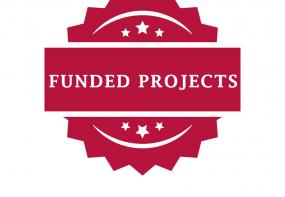
The Faculty members are expertise in the area of material chemistry, catalysis, bio-inorganic chemistry and supramolecular chemistry with a focus on providing solutions to real world problems in tackling cancer to energy crisis thereby creating an impact in the welfare of the society.
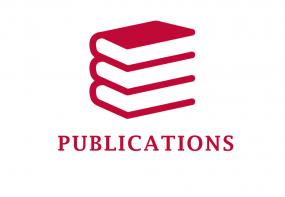
As per the UGC guidelines, Faculties are focused to publish research and review articles in SCI / WOS journals of National / International repute to expose their research in national and international arena.
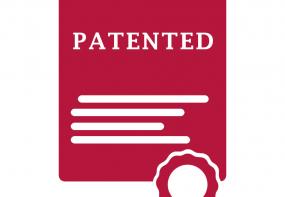
Patents ignites a culture of research and innovation which stimulates commercialisation and entrepreneurship leading to generation of funds for future research initiatives. Patent creates a positive environment to move from bench scale lab research to market place at larger scale. The department has two Granted patents and 3 published patents.
- Patent Number:378512- Sustainable and Environmental Benign Biodiesel-Diary Waste Scum and Eggshell/seashell.
- Patent Number: 352549-001 – Design for Water Filter
- Application Number-201911054049: Development of polymer Nanocomposite for EMI shielding-Published.
- Application Number-202041048435: Amalgamation of nano chitosan and adsorbent application process for-Published
- Application Number-202041010900: Synthesis Method of Nanocomposites for the Removal of Phenanthrene- Published.
"To explore new frontiers in chemical sciences through innovation and collaboration"
- To inspire and educate undergraduate and postgraduate students in chemistry by providing a platform to solve the challenges of global significance.
- To discover, create and understand basic scientific concept in chemistry by fostering research aptitude among students.
- To build partnership with industries as solution provider by collaborating both within and external to Sathyabama.
- To develop and strengthen ties between our Alumni by providing diverse tangible benefits and to inspire students and graduates.
- To cultivate our young brains as professional competence leaders by infusing ethics and moral values in their careers.
- PEO1:To strengthen the fundamental principles of chemical sciences with modern experimental and computational skills.
- PEO2:To mould student graduates to solve the practical problems relevant to environmental, safety, ethical and socio economic aspects.
- PEO3:To produce chemistry graduates with good managerial skills to demonstrate leadership qualities.
- PSO1:Students get expertise in inter-disciplinary research to solve cutting-edge problems at the interface of chemical sciences and engineering technology.
- PSO2:The students acquire knowledge in theoretical and practical tools to exemplify in academic and research organizations.
- PSO3:The students are trained to transcend competitive examinations to pursue research and higher studies in globally recognised institutions.
For Post-graduates
- PO1: Scientific Knowledge: Apply knowledge of chemical sciences in a systematic and logical approach for all future ventures.
- PO2: Problem Analysis: Identify, formulate and analyze the route cause for the scientific issues using rational reports
- PO3: Design and Development of solutions: Design processes/ reaction pathway for the scientific issues addressing to public health, safety, cultural, societal and environmental considerations.
- PO4: Conduct Investigations of complex problems: Analyze and interpret data from real-time industrial projects leading to valid conclusions.
- PO5: Modern Tool usage: Create, select and apply appropriate analytical and computational tools, techniques, resources in deciphering the scientific issues.
- PO6: Chemists and Society: Apply contextual knowledge in promoting scientific values and attributes in the society.
- PO7: Environment and Sustainability: Understand the footprint of industrialization to enhance the goals of sustainable development.
- PO8: Ethics: Commit to the principles of professional ethics to delineate the morals of statutory bodies.
- PO9: Individual and Team work: Function effectively as an individual and as a member or as a leader in diverse teams.
- PO10: Communication: Communicate effectively on scientific activities within the science forum and with the pristine people.
- PO11: Project Management and Practice: Apply knowledge of managerial and analytical skills at individual level and as a team leader in executing the projects.
- PO12: Life-long Learning: Ability to engage for life-long learning to ameliorate professional goals and the quality of life.
For Under-Graduates:
- PO1: Scientific Knowledge: Apply knowledge of mathematics, physical, chemical and natural sciences in a systematic and logical approach for all future ventures.
- PO2: Problem Analysis: Identify, formulate and analyze the route cause for the scientific issues using rational reports
- PO3: Design and Development of solutions: Design processes/ reaction pathway for the scientific issues addressing to public health, safety, cultural, societal and environmental considerations.
- PO4: Conduct Investigations of complex problems: Analyze and interpret data from real-time projects leading to valid conclusions.
- PO5: Modern Tool usage: Create, select and apply appropriate analytical and computational tools, techniques, resources in deciphering the scientific issues.
- PO6: Chemists and Society: Apply contextual knowledge in promoting scientific values and attributes in the society.
- PO7: Environment and Sustainability: Understand the footprint of industrialization to enhance the goals of sustainable development.
- PO8: Ethics: Commit to the principles of professional ethics to delineate the morals of statutory bodies.
- PO9: Individual and Team work: Function effectively as an individual and as a member or as a leader in diverse teams.
- PO10: Communication: Communicate effectively on scientific activities within the science forum and with the pristine people.
- PO11: Project Management and Practice: Apply knowledge of managerial and analytical skills at individual level and as a team leader in executing the projects.
- PO12: Life-long Learning: Ability to engage for life-long learning to ameliorate professional goals and the quality of life.
- Department has well qualified staffs from reputed State Government and central Government institutions.
- h-index of the Department is 17 with Highest Impact Factor of 12.06.
- Members in professional bodies like ACS, INSA.
- Generated an income of around 1 crore through Funding agencies.
- Record Placement of 85% for 5 consecutive years with an annual income of 4-5 lakhs.
- Patents- 2 Granted.
- Memorandum of Understanding (MoU) – 4
- Social activities "Outreach" in association with Tamil Nadu Government for imparting NEET coaching to under privileged and economically stressed students.
- Dissemination of science to young minds by "School on wheels" under Government Bharat Unnat Abhiyan.
Sathyabama Institute of Science and Technology places emphasize on co-curricular and extracurricular activities These activities are student centered and primarily aims to supplement regular curricular activities.Its goal is to represent the student body in making the study experience as rewarding and enjoyable as possible.
-
Academic Calendar
-
Student Council
-
Course Materials
-
Scholarship Scheme
-
Advisory Bureau for Higher Studies
-
Student Development Cell
-
Student Chapter
-
Counselling Services
-
Help Desk
-
Anti Ragging Cell
-
Women Grievance Cell
-
SC / ST Cell
-
Industry Institute Interaction Cell
-
Anti - Discrimination Cell
-
Students Grievance Redressal Cell
-
Student Achievements
-
Student Handbook
-
Entrepreneurship Development Cell
-
Skill Development Centre
-
Internal Complaint Committee
-
NCC/NSS/YRC
Centre for Academic Partnership & International Relations is an initiative of Sathyabama Institute of Science and Technology devoted to promote academic alliances with Universities and Institutes at National and International level. The Centre establishes a link through Memorandum of Understanding to facilitate Research Collaboration, Student Exchange Programmes and Faculty Exchange Programmes.
Insights
- Collaboration and MOU's
- Facilities
A Memorandum of Understanding (MOU) was signed by the Department of Chemistry, School of Science and Humanitites, Sathyabama Institute of Science and Technology, and Tristar Engineering company, Chennai on 04-08-2021.The main objective of this MOU is to fabricate and design of equipments related to agriculture.

A Memorandum of Understanding (MOU) was signed by the Department of Chemistry, School of Science and Humanitites, Sathyabama Institute of Science and Technology, and Hiyoshi India Ecological Services Private Limited on 20-12-2022. The main objective of this MOU is to disseminate and provide solutions to water and wastewater treatment.
UV-Visible Spectrophotometer is used for quantifying the substance, studying the structural conformation changes in the complexes and protein

ICP-OES is an effective method for conducting elemental analyses for wide range of complex samples where the matrix contains a high level of dissolved solids

The chemistry laboratory is designed for wet chemical analysis involving the preparation of solid and liquid samples suitable for further analysis by sophisticated instrumentation. Vacuum Rotatory Evaporator used for concentrating and purifying the samples with subsequent analysis in NMR, GC

Experiments on preparation of volatile samples and catalyst are carried out inside a fumehood

The chemistry laboratory is designed for wet chemical analysis, catalyst preparation by wet chemical methods. It houses traditional equipments which includes glasswares, muffle furnace, air-oven equipment, pH meters, conductivity meters, potentiometers, bench scale photocolorimeters for the preparation of solid and liquid samples and standards suitable for further analysis by sophisticated instrumentation. It can accommodate 160 students with a spacious area of 14000 sq.ft.area.

Department of Chemistry organized a one day Industrial visit for Final year B.Sc Chemistry and M.Sc Chemistry students to NURAY CHEMICALS PVT LTD, located in Sidco Industrial Estate, KAKKALUR, THIRUVALLUR on 20.07.2024. Nuray Chemicals specialises in developing the chemical needs of the pharmaceutical industry. This visit has provided students with a comprehensive understanding of these critical processes, reinforcing the importance of quality in pharmaceutical production and the intricate workings of the industry.
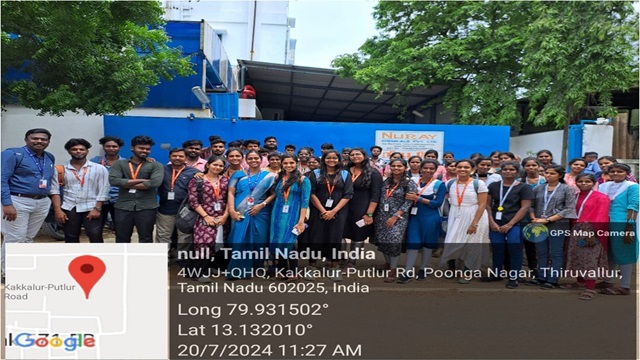
Department of Chemistry conducted a two days "Workshop on Applications of Thin Layer Chromatography” (WAT-2024) on July 26 and 27, 2024. Around 60 participants took part in the event. Speakers Dr. K. Mohan, President, Masschro Laboratories and Dr. K. Ravi, Director, Nuray Chemicals Pvt Ltd explained the importance and applications of thin layer chromatography in developing quality products. The participants received hands on training in the development and separation of compounds by TLC.
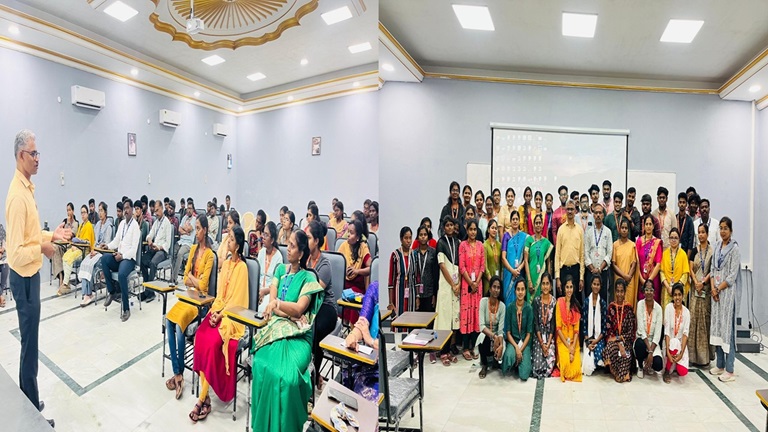
Final year UG and PG students of Department of Chemistry were taken to NML laboratory where the students interacted with the scientists and learnt their thrust area of current research going on.
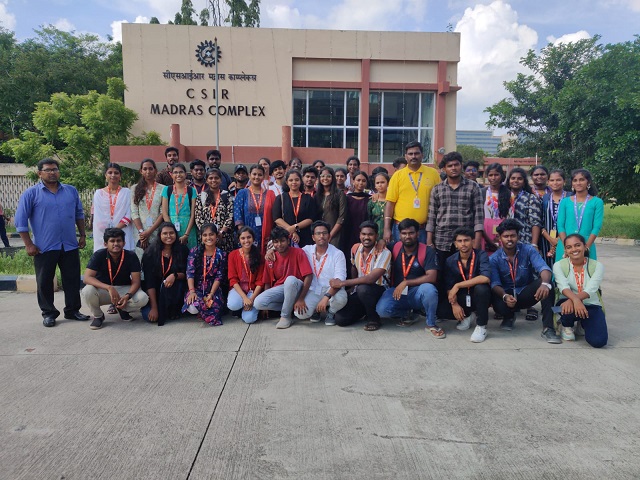
Final year UG and PG students of Department of Chemistry were taken to SYMRISE industry and acquired an in-depth knowledge on the synthesis and characterization of fragrance and flavour producing substances.
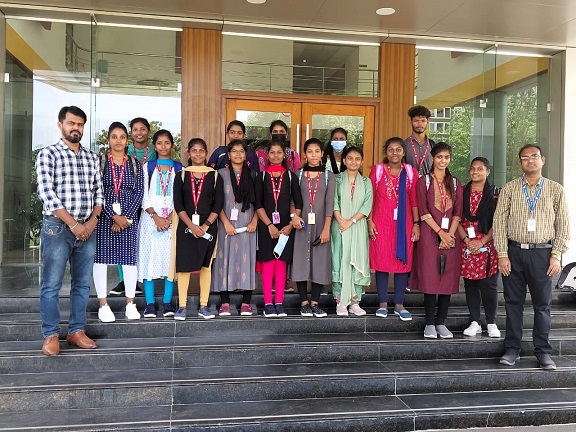
Sathyabama Institute of Science and Technology and CSIR - NML Madras Centre jointly present the "WORKSHOP ON INTERPRETATION OF INSTRUMENTAL METHODS (WIIM-2024)" from January 3rd to 11th, 2024, in Chennai. With 260 participants from across India, the workshop encompasses three modules: Spectroscopy, Microscopy, and Particle Characterization. Attendees engage in demo sessions covering theoretical aspects and data interpretation for techniques such as Particle Size Distribution, BET Surface Area, Zeta potential, XRF, XRD, Optical Microscopy, FESEM, HRTEM, Atomic Force Microscopy, and various spectroscopic methods like UV-Visible, DRS, FTIR, Raman, and Fluorescence.
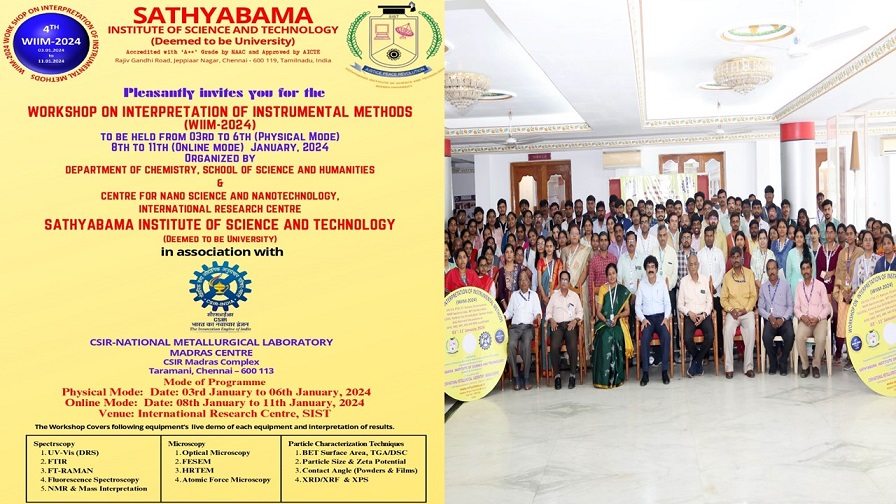
μStat-i 400 is a portable Potentiostat/Galvanostat/Impedance Analyzer (EIS) that can be applied for Voltammetric, Amperometric, Potentiometric and EIS measurements and can be used with one- or two-working electrodes configuration. These instruments are an ideal and practical solution in many research areas, such as sensor, corrosion, electrocatalysis, coin-cell batteries, fundamental electrochemistry, or fuel cells among others.

The Yusuf Hamied Inspirational Science Programme (YHISP) was a two-day training for 43 Chennai school science teachers on September 13-14, 2023, organized by Department of Chemistry, Sathyabama Institute of Science and Technology in collaboration with Royal Society of Chemistry- Chennai Chapter. The programme outlines the importance of active learning and practical experiments, enriching participants with valuable strategies. The programmed was convened by Dr. K. Chennakesavulu and G. Ramanjaneya Reddy.
The Department of Chemistry has organized One-week virtual FDP on Frontiers in Chemistry 2023 (FC-2023)” from 20th–28th September 2023. The programme featured knowledge sharing from various reputed institutions with eminent speakers, Prof. Priyadarsi De from Indian Institute of Science Education and Research, Kolkata, Dr. Sripada S. V. Rama Sastry from Indian Institute of Science Education and Research, Mohali, Prof. Debabrata Maiti from Indian Institute of Technology, Bombay, Dr. R. S. Swathi from Indian Institute of Science Education and Research, Thiruvananthapuram, Dr. V. Kaliginedi from Indian Institute of Science, Bangalore and Dr. H. S. S. Ramakrishna Matte from Centre for Nano and Soft Matter Sciences, Bengaluru, Karnataka. The pace of FDP accelerated rapidly as chemists on the frontiers of knowledge established the theories and methodologies of modern science

The Department of Chemistry has conducted an expert lecture series on 29th September 2023 to create awareness to young graduates on futuristic research in the field of chemistry. The programme was addressed by Principal Scientist, Dr. G. Saravanan, CSIR- NEERI Chennai. He shared his research experience on cleaner energy production to our students.

The Department of Chemistry has conducted One-week virtual workshop on “Concepts in Computational Chemistry (WCCC-2023)” from 11th–17th July 2023. The programme featured knowledge sharing from prominent speakers, Prof. Rajakumar Balla, IIT Madras, Dr. Anjan Bedi, SRM University, Mr. W.A. Carlton Ranjith, SIST, Dr. Amrita Pal, SIST and Dr. Gopalakrishna, D.G. Vaishnav College, Chennai.

The Department of Chemistry, Sathyabama Institute of Science and Technology, organized the two days National level workshop on Computer Aided Drug Design (CADD23) from 11.08.23 to 12.08.23 through zoom platform. In this program, the expert Dr.Mukesh Doble, Emeritus Professor, Dept. of Biotech, IIT-Madras gave his invaluable presentation on the molecular docking programs, pharmacore modelling, Pharmaco kinetics and dynamics and their calculations along with the significance in pharmaceutical field.

The Department of Chemistry, Sathyabama Institute of Science and Technology, organized the Fifteen days (30 hours) Refresher Course on Selective Topics in Organic Chemistry Phase-IV (OCRC23) from 02.08.23 to 19.08.23. Under this program, experts from established and renowned colleges and share their knowledge on those particular topics. The program was helpful to the participants to evaluate the organic chemistry problems based on CSIR/NET/ SLET and GATE examinations.

A Three-day national level workshop on “Spectroscopic Techniques for Elucidation of Molecules” (STEM 2023) was conducted from 16-8-2023 to 18-8-2023 by the Department of Chemistry, Sathyabama Institute of Science and Technology in association with the International Research Centre (IRC), Sathyabama Institute of Science and Technology in offline mode. Students from various city colleges attended the programme and enhanced their knowledge on the spectroscopic techniques which play crucial role in analysis and structural elucidation of molecules.

The Department of Chemistry in association with School of Pharmacy has conducted a one-day seminar on Drug Abuse/ Addiction- Biochemistry Perspective on 25th July 2023. The programme was attended by 60 students from Sathyabama Institute of Science and Technology. The programme focused on biochemistry of drug abuse and addiction with introduction to herbal medicines.

The Department of Chemistry has conducted a one-day academic outreach program in one of our adopted schools, “Thanthai Periyar Government Higher Secondary School”, Puzhuthivakkam on June 30th 2023 from 10.00 am to 2.00 pm. Around 75 school students of Class X from the school have actively participated in the event. The program was coordinated by Dr.V.Kavitha, Professor, Department of Chemistry and Dr. J. Karthikeyan, Professor and Head, Department of chemistry along with 5 M.Sc., chemistry students.
The Department of Chemistry has conducted a one day workshop in Women in Science and Engineering-WISE 2023 to commemorate International women’s day on 11th March 2023. The Programme was attended by 100-120 students. The Programme focuses on the role of women in country’s development and had three sessions from eminent personalities. The first session was an inspirational talk by Dr. Jane Prasad, Registrar, IIT Madras; followed by a technical talk by Prof. Dr. Sadhana Rayalu, Director, NEERI. The programme ended with a quiz to portrait women in all walks of life.
The Department of chemistry in association with International Research centre, Sathyabama Institute of Science and Technology has conducted a three day workshop on Intrepretation of Instrumental methods (WIIM-2023), from 7th Jan-10th Jan2023.The WIIM-2020 Workshop brought together scientists, faculty, and researchers from various institutions to improve the quality of higher education in manuscript preparation, submission, and interpretation of results. The workshop covered UV, TGA, BET Surface area, Particle Size Distribution, Zeta potential Measurements, Contact Angle Measurements, Surface energy Measurement, and Electron Microscopy. With 100 participants, the workshop aimed to enhance attendees' skills in analyzing scientific results and producing higher quality manuscripts.
The Department of chemistry has conducted a one day certificate programme on UV-Visible Spectrophotometer on the 14th February 2023 for the final year undergraduate students. The programme was scheduled with a 2 h lecture and 2 h practical session. The programme enable the participants to understand the basic operation of UV-Visible spectrophotometer and to assess the spectra for the samples.
The Department of chemistry in association with International Research centre, Sathyabama Institute of Science and Technology has conducted a one day workshop on Thermal Analysis (OWTA-2022), on 29th September, 2022.
A six day virtual student development programme has been conducted from 8th August 2022 -13th August 2022 to give an insight into interview planning and to enhance competitive spirit among students.

One-Week Virtual workshop conducted on “Trends and Applications of GC – MS (TAG-2022)” during 11th –16th July,2022 comprising of invited talks by Prof. Rajakumar Balla, IIT Madras, Dr. Tanay Kundu, VIT Chennai and Dr. K. Rajkumar, CUTN and Virtual Hands-on Training on GC-MS Instrument Operation & Demonstration by Mr. Kumar, Scientist-B, Centre for Ocean Research, Jeppiaar Research Park.

Discover yourself and Your Ideal Career, One-day seminar to create awareness and kindle the interest of undergraduate science students to excel in their academics was conducted on 05th July,2022.

Particle Characterization Techniques (PCT-2022), Mrs. N. Vasumathi, Mr. D. K. Sharma, Dr. J. Sreeramulu, Dr. Y. J. P. Rao and Dr. K. Chennakesavulu (From left to Right) during the valedictory function of PCT-2022 held from May 30th -6th June 2022.

Dr.T.Y Suman. addressing the participants by explaining GC-MS and ICP-MS in "Instrumental Methods of Analysis" organized in association of Ministry of Earth science to promote Interpretation of spectroscopic results among post graduates students.

Dr.B.Sheela Rani, Director-Research, SIST interacting with the participants on the current scenario of nuclear energy in Nuclear Energy- Environment, Demand and Supply (NEEDS-2016).

Dr.J.Karthikeyan presenting a Memento to Dr.G.Rajaramam, IIT Mumbai in Challenges and Advances in Computational Chemistry- CACCh
The curriculum strives to provide a strong scientific technical foundation in defining problem and act as solution provider for industrial requirement. For Bachelor's programme, the student must complete a 10 core subjects with an average credit of 90. The programme offers equal importance to mathematics, physics and humanities to compete with competitive examinations. For Master's programme, the student will be exposed to equal weightage in physical, organic and inorganic chemistry domains to meet the industrial requirements.
|
Distinguished Alumni
